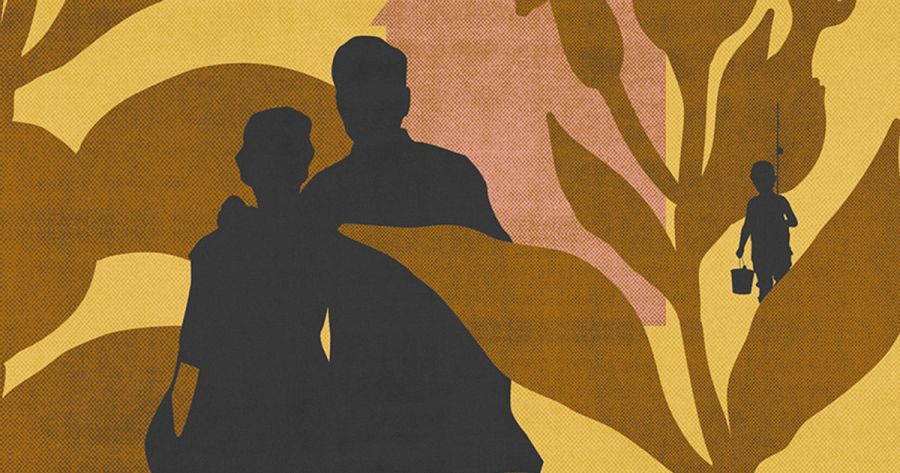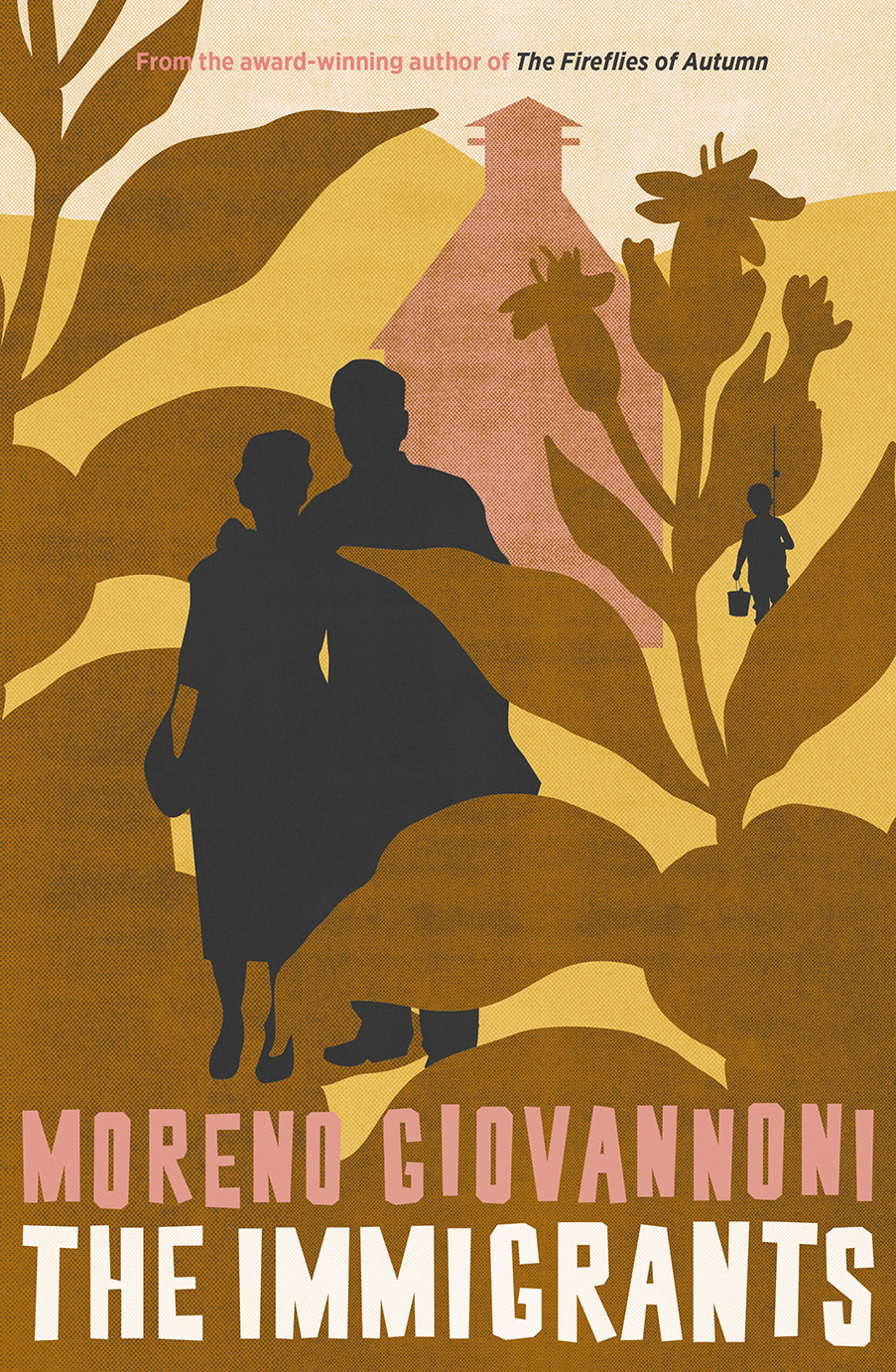
- Free Article: No
- Contents Category: Fiction
- Review Article: Yes
- Article Title: Bread of Tuscany
- Article Subtitle: Vignettes of migrant life
- Online Only: No
- Custom Highlight Text:
When Moreno Giovannoni, in his first book, The Fireflies of Autumn (2018), produced lines like ‘The Angel of Sadness draped its wings over the village and slept’, it was clear we were dealing with a writer of some poetic sensibility. Indeed, Giovannoni writes about his subjects with such care, tenderness, and gentle humour that it is possible to forget that the life he is depicting was more often than not ‘wretched’. He wrote his first book for two main reasons: to give readers the ‘flavour’ of a place and to depict the ‘travails of migrants’. These are also the reasons for his second book, The Immigrants, in many ways a companion to his first.
- Featured Image (400px * 250px):

- Alt Tag (Featured Image): David Jack reviews ‘The Immigrants: Fabula mirabilis, or, a wonderful story’ by Moreno Giovannoni
- Book 1 Title: The Immigrants
- Book 1 Subtitle: Fabula mirabilis, or, a wonderful story
- Book 1 Biblio: Black Inc., $36.99 pb, 304 pp
- Book 1 Cover Small (400 x 600):

- Book 1 Cover (800 x 1200):

- Book 1 Readings Link: https://www.readings.com.au/product/9781760645267/the-immigrants--moreno-giovannoni--2025--9781760645267#rac:jokjjzr6ly9m
The new book is set mostly in northern Victoria, although, as Giovannoni points out, the locations are not to be confused with actual places. Monbafalo is not Mount Buffalo, he insists; Mitrefò is not Myrtleford. The same can be said for the characters: ‘After fifty years, all places and people are fictional.’ There are brief sojourns in Melbourne’s inner north (Carlton, Bruns-wick, and Fitzroy), but Giovannoni is more interested in the Italian presence in the rural north, less familiar to some readers than the communities which sprung up in Melbourne’s inner north following World War II. His goal with this book was to ‘create a fantasy world based on one that has been largely unknown until now and in which I hope the reader can be immersed, viewing with different eyes the lives of the immigrants they have until now superficially imagined’. He succeeds on each count: The Immigrants, a compelling, emotionally rich work, offers a poetic and at times moving treatment of a little-known part of Australian history.
The Immigrants is centred on a fictionalised version of the Giovannoni family, who immigrated to Australia from the village of San Ginese in Tuscany in the 1950s. It is less a novel than a collection of interconnected vignettes depicting migrant life in the internment camps, vineyards, and tobacco plantations in northern Victoria and the factories of inner Melbourne. The book’s subtitle – ‘Fabula mirabilis, or, a wonderful story’ – presages the treatment of events in these vignettes, and while The Immigrants is somewhat less ‘fabulous’ than Fireflies, it nonetheless deals with the events it recounts in a way that always moves from the particular towards universal meaning or the ‘moral of the story’. The same can be said for the book as a whole: details such as identity cards and certificates of registration, as well as historical events like the so-called Spaghetti Riot of 1961 at the Bonegilla migrant internment camp (in which the author’s father took part), give way to a more universal concept of exile which Giovannoni borrows from Dante: to ‘know the bitter taste of another’s bread’ is literalised in the book by reference to the square, flat, tasteless bread of the internment camps when compared with the wonderful unsalted bread of Tuscany.
One of the disadvantages of emigration for Giovannoni is that ‘you lose the common cultural connection that would allow you to share an appreciation of certain customs, values and things. The soul has needs that emigration can never satisfy.’ His father’s transition from peasant, the qualities of which were ‘perfected over generations and [were] circulating in the blood’, to ‘labourer’, condemned to perform ‘the tedious physical work the Australians do not want to do’, is one example of this. It ‘ruins his digestive system, producing a stomach ulcer which he carries until he is fifty-seven’. More suited to working the land, he nonetheless takes a job first in a foundry and then repairing tram tracks. His mother, too, tries factory work but settles on dressmaking. Meanwhile, the young Moreno slowly learns what it means to be ‘living in one place and having a connection with somewhere else’.
Giovannoni wanted to be a writer since the age of fifteen, but life had other plans for him. It was in his blood, however, from an even younger age, as the character of the young Moreno in The Immigrants hints: ‘The boy notices these things. He is becoming aware that he notices. He starts to think that he would prefer to watch and report.’ A wonderful evocation of the early consciousness of writing as a vocation: an awareness that one notices, that one prefers to ‘watch and report’. The Immigrants is full of the kind of detail only an attentive storyteller could provide: the ‘rustle of leaves, clothes and hessian aprons brushing against plants’ which tells Moreno where his father is in the vast tobacco plantation; the sandwiches his mother makes ‘in the Australian fashion but without butter, which is unknown to Tuscan women’. This is supplemented by the minutiae of the day-to-day lives of his characters, the growing, harvesting, and preparation of tobacco, transcripts of police interviews and depositions, lists of different kinds, detailed descriptions of the official documents which redefine the destinies of the newly arrived migrants. Death is ever-present, specifically in the series of ‘Grotesques’ spread throughout the book; death by suicide, by explosion, by murder, by snake bite; hope continually giving way to despair.
For his first book’s epitaph, Giovannoni wrote: ‘Migrants never arrive at their destination’. The Immigrants modifies this somewhat by showing that, as a well-known psychoanalytic axiom states, you always arrive at your destination because the destination is wherever you arrive. As Giovannoni puts it: ‘There is a moment when an event is meaningful and then an entire life ahead when it is meaningless, except for the consequence.’ Life, in this sense, is simply a consequence of some meaningless event; or, to put it another way, an event is only meaningful when its consequences constitute a life. A writer whose destiny it is to watch and record cannot but arrive at this conclusion, and Giovannoni wonderfully captures this tragicomic notion of destiny in the final chapter, ‘Now and Forever’, which has the force of James Joyce’s ‘The Dead’ in Dubliners, with which this book can be compared: the immigrants reach their destination with the arrival of this book.


Comments powered by CComment